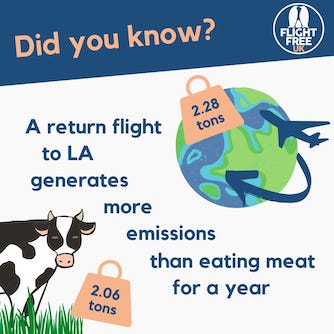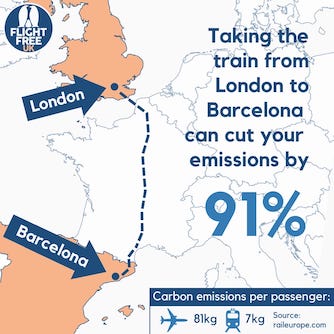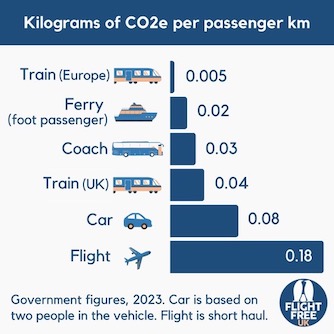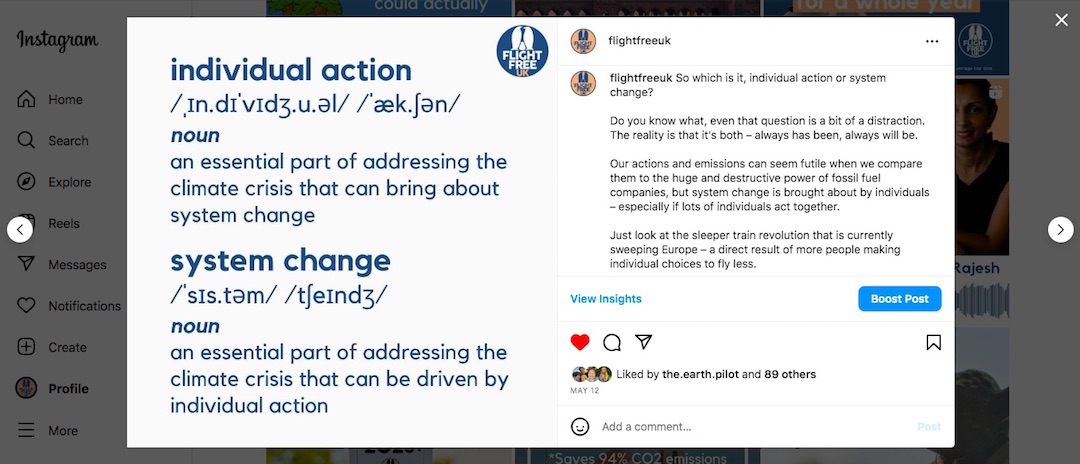Why flight free?
Reducing our carbon emissions is vital in avoiding climate breakdown. There are lots of things we can do, like eating less meat, using renewable energy, and driving less. But did you know that just one flight can wipe out all your savings?
Taking a flight free year is a great way to cut your emissions and give other ways of travelling a try.
To reduce emissions
Not everybody flies, but for those that do, flights are likely to make up the biggest chunk of your carbon footprint. It's one of the most high-carbon ways of travelling, so switching to another mode of transport can make a huge impact on our emissions.
Find out how much of your carbon footprint is taken up by flights with the WWF carbon footprint calculator.



Sources: We use flightemissionmap.org and raileurope.com to work out flight emissions.
We use DfT figures for other transport emissions.
For more detailed stats on emissions, go to our blog article 'How bad are aviation emissions anyway?'
For justice
Aviation emissions affect us disproportionately: it’s typically the rich nations who take most of the flights, whereas the poor nations are suffering the effects of climate change and are least equipped to deal with rising temperatures.
Even here in the UK, only around half of people fly per year, yet the negative effects of aviation are felt by a large number of people, whether by noise and pollution from airports, or taxpayer-funded bailouts for airlines.
Aviation doesn’t pay its fair share of tax, with no tax on jet fuel (road fuel is taxed at 50%), and no VAT on airline tickets. The benefits of aviation are felt by only a few, yet we all suffer the negative consequences.
To influence system change
We won’t get to where we need to be without big structural changes led by government. One way to influence government and industry is through our consumer choices. Markets respond to demand, as we have seen with a resurgence in trains and ferries across continental Europe as more people become interested in low-carbon travel.
Individual change on its own is not enough, but it plays a very important part in helping to shape policy.
